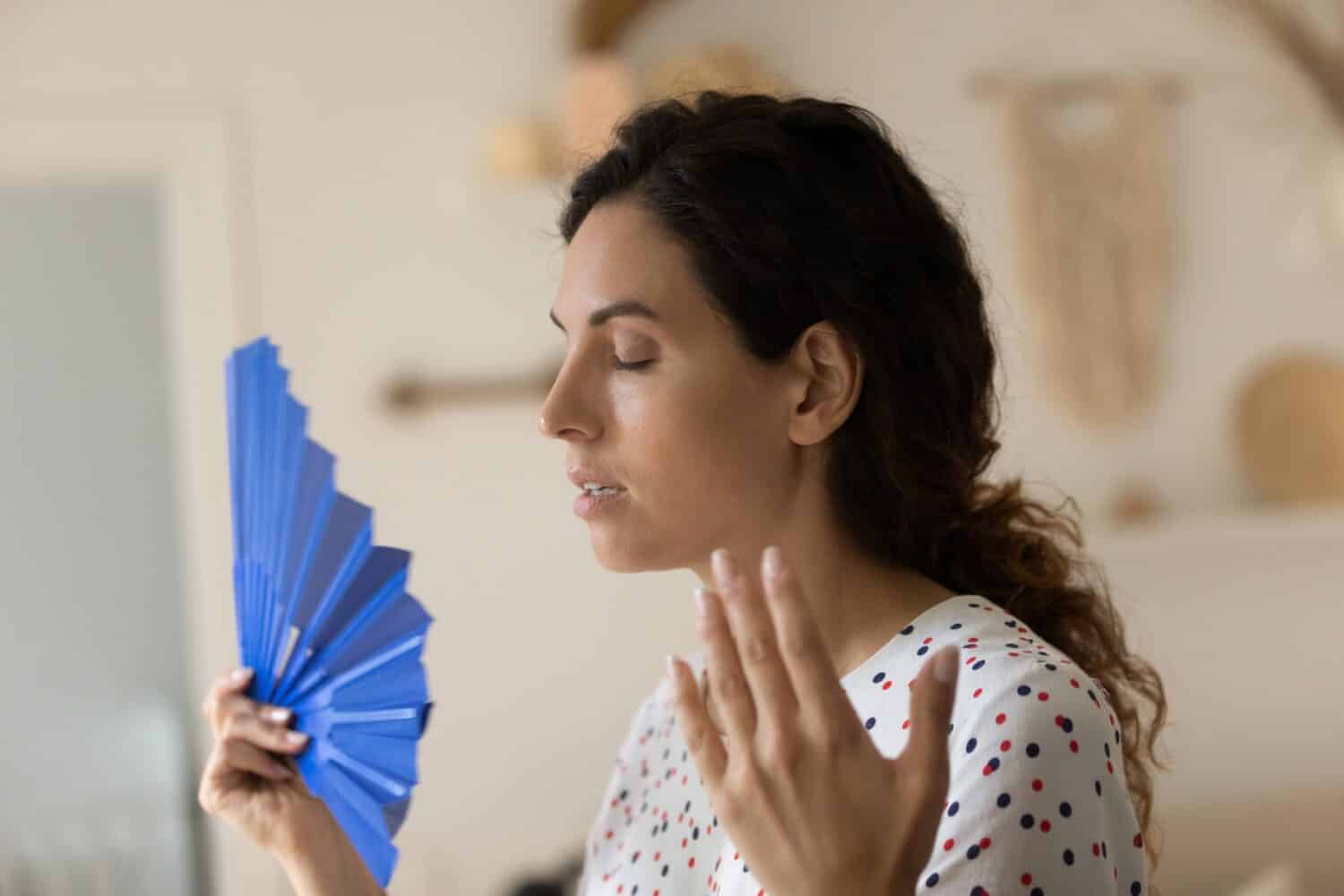Experiencing hot flashes during menopause can be uncomfortable and emotionally challenging. The most common symptom of menopause is the occurrence of hot flashes, sometimes called hot flushes or night sweats. While the frequency and severity can vary from woman to woman, they tend to disrupt sleep patterns and daily life. Understanding what cause and triggers these hot flashes is essential in managing and minimizing the impact. By educating yourself and implementing simple lifestyle changes, you can potentially regain control over hot places and improve your quality of life.

©fizkes/Shutterstock.com
Key Points
- Hot flashes are one of the most common symptoms of menopause and can vary in severity and frequency.
- Night sweats, which are hot flashes that occur at night, typically result in heavy perspiration and disrupted sleep.
- Lifestyle changes, including exercising regularly and keeping rooms at a cooler temperature, can reduce the intensity and frequency of hot flashes.
- Typically women to lead stressful lifestyles will experience up to five times as many hot flashes as relaxed women.
How Do Hot Flashes Affect Your Everyday Life?
It is believed that hot flashes are partially caused by a drop in estrogen in the body combined with other factors, such as stress levels and lifestyle. Recent reports indicate that women who lead stressful lifestyles can suffer up to five times as many hot flashes as a relaxed woman. Not every woman going through menopause will suffer from hot flashes, and they can start several years before menopause begins. Combined with irregular periods, hot flashes are the prime indicator of the onset of menopause.
The severity of the hot flashes varies from person to person. Some women may have quite mild symptoms and will feel gentle warmth spreading over the upper body, neck, and face. Others will feel intense heat and heart palpitations. Hot flashes may last anywhere from a few minutes to half an hour. While some women will have a few hot flashes a week, others may have several every day. Night sweats, as the name suggests, occur at nighttime and result in heavy perspiration. The sufferer may find it hard to get back to sleep and in extreme cases, it may result in insomnia.
What You Can Do to Cope With Hot Flashes
The first step in dealing with hot flashes is to try to isolate what triggers them. The best way to do this is to keep a diary and note what you were doing and where you were before the hot flash started. Environmental factors such as hot offices or rooms along with stressful situations may help trigger the hot flash. Also, write down what you have eaten as it is suspected that diet helps to trigger hot flashes. Caffeine and alcohol are believed to play a part in triggering hot flashes, so monitor your intake. Once you have isolated what triggers your flashes, you can start taking steps to minimize them. On a physical level, it is known that lower levels of estrogen fool the hypothalamus into thinking that the body is overheating. It then responds by opening blood vessels and directing blood to the skin's surface to be cooled. This results in the manifestation of the physical symptoms.
By making a few simple changes to your lifestyle you may be able to reduce the intensity and number of your hot flashes. Try to exercise during menopause more often as this will also help with other symptoms of menopause. Keep rooms a few degrees cooler than normal and turn the air conditioning up. Plan your wardrobe accordingly, wear plenty of cotton and linen, and avoid wool as much as possible. Wear several light layers of clothing so that you can remove layers if you start to get warm.
Menopause Information Center
The content of this article should not be considered professional medical advice. Exercise due diligence when seeking relevant health information. Always consult your healthcare provider before making any medical decisions.